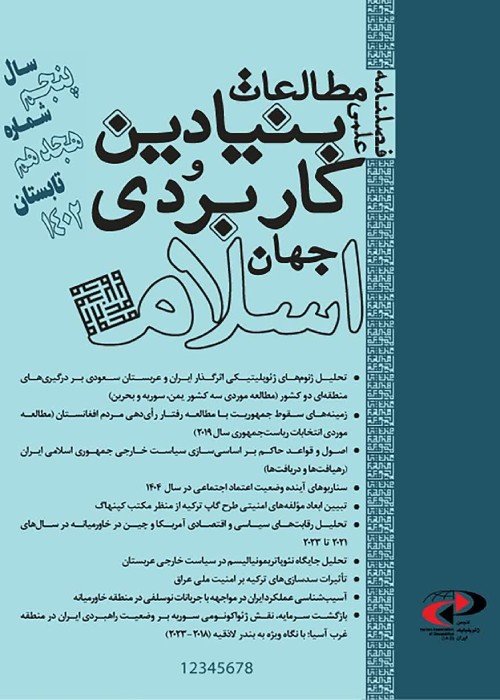Assessing the role and performance of the United Nations in the Syrian crisis.
The Syrian crisis following the Arab Spring has been one of the most important events in West Asia since 2011, which, given the importance of Syria's geopolitical and geostrategic position, involves a complex set of political and security equations at home and abroad; The reason for the formation of the Syrian political crisis can be explained in three levels of internal, regional and international analysis. In this regard, at the domestic level, the starting point of the Syrian political crisis was 2011 and the demonstrations were mainly in the small and marginal areas of Syria as variables of the people's demands for Syrian reform, fighting corruption, reform and gaining freedom. They have been active in Syria since the first months of the war in 2011, the intensity of foreign opposition participation has gradually increased, and the crisis has become more complex. The table below summarizes the evolution of the Syrian crisis. So this is not an internal crisis and there were all kinds of regional and trans-regional actors. Since the layers of the conflict in Syria focused on the three layers of internal, regional and trans-regional actors, any real stability in Syria also depended on the coming together of these three forces. More specifically, on the one hand, groups opposed to Bashar al-Assad, such as the Free Syrian Army, militias seceded from the Syrian army in 2011, the Nusra Front, al-Qaeda in Syria, the Islamic Front (a coalition of several Salafi Islamist groups) were supported by the West and the Arabs. On the other hand, the Syrian government, which had the support and presence of forces from Iran, Russia, Iraqi Shiite militias and Hezbollah in Lebanon; Also, while the West focused on the fall of Bashar al-Assad, it opposed the policy of Russia and China in using the veto in the Syrian case, which guided the policy of these two countries to prevent the success of the coalition against Bashar al-Assad. Although this is a field fact, it must be said that one of the reasons for the role of the United Nations in crises was due to the pervasiveness of realist views in international relations, which was reinforced by the public atmosphere after World War II and the re-defeat of legal thought. Another efficiency and usefulness in resolving international issues The United Nations, as the most common international body with the primary mission of maintaining international peace and security in accordance with the Charter of the United Nations, acted to reduce the level of violence and its resolution; Therefore, the importance and necessity of explaining the actions of the United Nations in the largest geopolitical conflict since the end of the Cold War is the main motivation for writing this study. The present article is a descriptive-analytical method in order to respond to this fundamental research on the role and function of UN actions and how effective it has been in resolving the Syrian crisis. In response to this question, the research hypothesis is that although the UN has adopted several resolutions in various stages of the Syrian crisis, the resolution of the Syrian conflict through UN mediation, given the influence of trans-regional actors and the use of vetoes. Concerns about the influence of rival countries in Syria have weakened its performance in the crisis. Also, given the emergence of proxy wars, the formation of international custom by the United Nations in the face of such crises requires the passage of time. Of course, it should be noted that the UN and the Security Council are studying two important points in resolving the Syrian crisis. First, the importance of the Syrian crisis and its strategic position for the major powers will influence the decisions of the Security Council, and second, recognizing the motivation and behavior of the Security Council member forces in relation to the Syrian crisis in the interests of each of these actors. we should know that any decision that will lead to the influence of competitors will take a stand against it. However, regarding the performance of the UN, it can be said that the issuance of several resolutions, such as 2012, Resolution 2043 - Sending UN monitoring groups to Syria; 2012 Resolution 2042 - On the Syrian Civil War, the United Nations sends troops to monitor; 2012 Resolution 2059 - 30-day extension of UN troops in Syria; 2013 Resolution 2118 - Syrian civil war to destroy chemical weapons in Syria; 2014 Resolution 2139 - Syria's civil war Sending humanitarian aid to the country is one of its actions.
- حق عضویت دریافتی صرف حمایت از نشریات عضو و نگهداری، تکمیل و توسعه مگیران میشود.
- پرداخت حق اشتراک و دانلود مقالات اجازه بازنشر آن در سایر رسانههای چاپی و دیجیتال را به کاربر نمیدهد.



